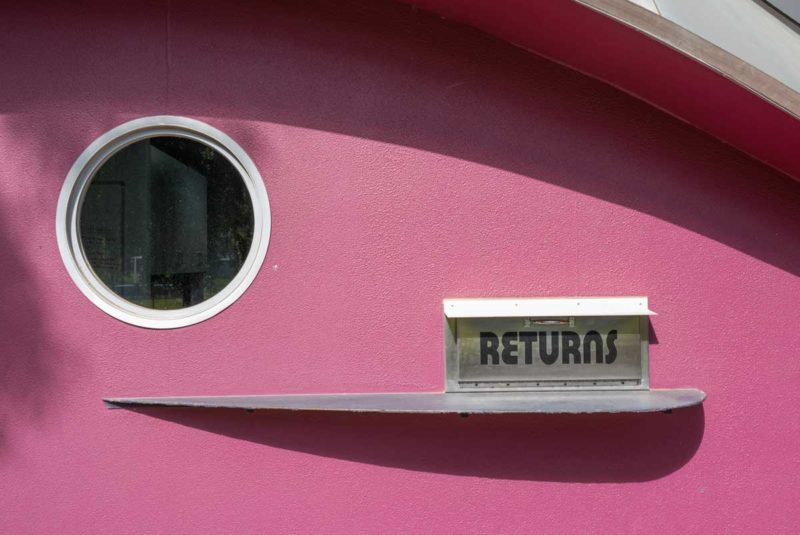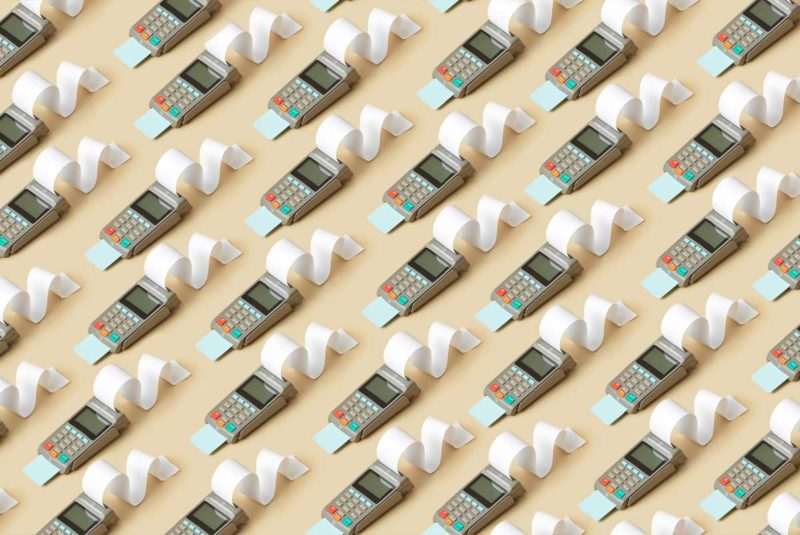At some point in all of our credit card-using lives we’ve probably heard the words, “I’m sorry, but your credit card has been declined.”
Dealing with a declined credit card while holding up a long line of customers at the cash register is embarrassing, and it often leaves the consumer angry or concerned about fraud. But the reality is that there’s likely a very good reason why your credit card has been flagged or declined, and in most cases, the issue can be resolved with a simple phone call.
Here’s a look at what to do if your credit card has been declined or flagged, as well as some of the most common reasons why these issues might arise.
What Do “Flagged” and “Declined” Mean in the World of Credit?
A declined credit card transaction means that something went wrong while your purchase was being processed and that the purchase couldn’t be completed. You might be able to circumvent the issue by simply ensuring that you entered the correct information, such as your billing ZIP. If that doesn’t work, there may be something else at the root of the problem, and you might not be able to use your credit card until it’s addressed.
There’s good news, though. In many cases, declined transactions are for your own protection, and that’s where flagging comes into play. Credit cards are often flagged automatically when used in a way that suggests the charges might be fraudulent.
Once a card is flagged, it’ll generally be declined indefinitely in order to prevent unauthorized purchases, though fixing the issue is often as simple as contacting your issuer to confirm that whatever behavior caused your card to be flagged was your own action.
What Should I Do When My Card Is Declined?
If your credit card is declined, start by double-checking to ensure that you entered the right information.
When shopping online, that information will include your credit card number, billing address, expiration date, and security code. If you’re using your card at a brick-and-mortar business, this will likely only include your billing ZIP code.
If you’re positive that you’re entering the correct information and your card is still being declined, check the back of your credit card for your issuer’s contact information. Call the toll-free number and ask the representative what’s wrong. Your credit card issuer will virtually always be able to identify the issue and guide you through the steps you’ll have to take to address it.
Why Was My Credit Card Declined?
Fixing a flagged or declined credit card is often a straightforward process, but if you’re a frequent credit card user, it’s still important to understand why your card may be declined in the first place.
There are several reasons why this might happen, and most of them are pretty simple.
The first, however, is fairly serious — you may be a victim of fraud and identity theft. If that’s you, contact your card issuer. Less serious reasons for a decline might be an expired card or a purchase made in an unusual location, like while traveling.
You’re actually a fraud victim
The issue
In many cases, a declined transaction has a quick, simple fix. But remember that the safety measures that can lead to a flagged card are designed to protect you from the very real threats of identity theft and credit card fraud.
If your card information falls into the wrong hands, a fraudster may use it for nefarious purposes. Hopefully, though, this would trigger the aforementioned safety measures to help prevent criminals from racking up debt in your name.
The solution
If your card was declined because it’s flagged for fraud, your card issuer is already acting to protect you. It may have tried to contact you by phone, secure message to your online account, email, or regular mail.
In any case, you should contact your issuer as soon as you realize (or suspect) that your card is flagged for fraud. The credit card company will likely deactivate the card and send you a new one. You may have to dispute any fraudulent credit card charges as well, depending on how your issuer handles the situation. The major card networks have zero liability policies, but make sure to inform customer service as soon as you notice any signs of fraud.
In most simple cases of credit card fraud, you’ll be able to go about your typical credit card activity once you’ve received your replacement card. But resolving more complicated cases, or those that involve larger sums of money, may take a bit longer.
If you believe your personal information was compromised along with your credit card account, it’s a good idea to freeze your credit reports with the nation’s credit reporting agencies. This will prevent additional credit accounts from being opened in your name without your permission.
Going forward, make an effort to , and monitor your credit accounts and statements regularly. Even simply logging in to your issuer’s mobile app to ensure all of your recent purchases are valid can help you get a leg up on fraudulent activity.
Plus, keep your credit card information , and try to only use your cards with reputable, established merchants. If a website seems even a little bit suspect, consider searching for the product you’re after elsewhere or look into using a virtual credit card for the purchase.
You entered the wrong information
The issue
A simple slip of the fingers could be all it takes for your transaction to be declined. As is the case with an incorrectly-entered debit card PIN, inaccurate credit card information will prevent you from completing a purchase.
The solution
Declined transactions are common, so don’t panic. Checking to make certain you’ve entered the right information should be the very first step you take after a transaction has been declined.
Your credit card expired
The issue
It’s easy to forget that your credit card’s expiration date is more than just a piece of information to type into online forms. Credit cards actually expire, and if you don’t take the time to renew your account, you’ll no longer be able to use your card.
The solution
This is another issue that’s easy to avoid with a watchful eye. Issuers will generally send you a replacement card before your current card expires. All you have to do is activate the new card per the instructions that come with it. Or, just contact your issuer to request a new card (in many cases you can request new cards online).
The type of card you have isn’t accepted
The issue
Not all credit cards are created (or treated) equally. Certain credit card networks boast wider acceptance than others, with Visa and Mastercard leading the pack.
Discover is accepted widely in the United States, but not as much in other countries. And in some countries Discover cards aren’t accepted at all.
American Express is a popular network, but it’s known for the higher interchange fees it charges businesses that take its cards. As a result, Amex cards are accepted in a considerable selection of countries, but whether they’re widely accepted within a given country varies.
There’s also the occasional merchant (domestic or international) that won’t take a particular credit card. Costco only accepts Visa credit cards, for example, and credit cards on other networks aren’t allowed (but debit cards from other networks are permitted).
The solution
Most merchants make it clear which types of credit cards they accept. If you’re shopping online, look for the website’s FAQ section. You’ll usually find a network list with other common payment questions. Or you can do a Google search and you might find the answer on a different site.
As for brick-and-mortar stores, you’ll probably find signs or stickers depicting which cards the merchant accepts on the door or near the cash register. If all else fails, ask a cashier, and he or she should be able to tell you.
You’ve reached your credit limit
The issue
Every credit card has a credit limit. Once you reach it, you won’t be able to purchase anything else until your credit card balance is paid down. This shouldn’t usually be an issue for experienced credit card users.
It’s worth noting that a portion of your credit limit may be occupied by temporary holds, such as those placed by hotels and rental car companies. These can be fairly hefty, but they’ll generally disappear after a few days, leaving a bit more available credit in their wake.
The solution
Monitor your card account regularly so you always know how much credit you’re working with when you’re about to make a purchase. You can log in to your account online or download a mobile app to check your account on the fly.
Consider making credit card payments throughout the month to help keep your balances low and increase the amount of available credit you have waiting. This could also help improve your credit scores by lowering your credit utilization.
If you’re dealing with a temporary hold, you could try contacting the business, whether it’s a hotel or car rental agency, to request the hold be lifted. You’ll usually just have to wait in these cases, though.
Another option is to request a credit limit increase, which will give you more available credit to work with. This may or may not result in a hard inquiry on your credit reports, depending on the issuer.
You’ve made a purchase that’s out of the ordinary
The issue
If you typically rely on your credit card only for routine expenses, dropping $2,000 on a high-end laptop might trigger your issuer’s fraud-detection system. Pricey items that are commonly purchased fraudulently, like expensive electronics or jewelry, are more likely to result in your card being flagged.
Other transactions that might cause trouble can include odd online purchases, recurring services, and certain kinds of automatic payments.
The solution
Your best move is to call your issuer to find out what’s going on. It’s not entirely uncommon for credit card users to brush the dust off long-unused credit cards for large purchases, so simply confirming that the transaction was valid should do the trick.
Some issuers also offer real-time fraud monitoring, which can help you avoid having to reach out to them. For example, you might get a phone call or a text message requesting that you reply a certain way based on whether the transaction was valid or fraudulent. It might send you a text that says, “Reply with “1” if this was a valid transaction; reply with “2” if you don’t recognize it.”
You’ve made a purchase while traveling
The issue
Purchases processed in an unusual location may lead to a flagged card. Whether you’ve driven to another state for the weekend or you’re looking to charge a luxurious meal in the heart of Paris, you run the risk of a declined transaction if you’re not normally associated with that location.
The solution
Most major issuers make it simple to set travel notices online, but you can set a notice by phone, too. Informing your issuer of your plans before taking off should prevent security measures from interfering with interstate and international purchases, although it can still happen.
The primary cardholder deactivated your card
The issue
If you’re an authorized user on another individual’s credit card account, the cardholder has control over your ability to use the card. Primary cardholders can eliminate authorized user privileges at their discretion.
Plus, when a primary cardholder reports his or her card as lost or stolen, it’s likely that all authorized user cards associated with the account would also be deactivated.
The solution
Always keep a clear line of communication with the primary cardholder. If possible, let him or her know when and how you plan to use the card. And if you’re expected to pay for any charges you make, you should probably keep up your end of the bargain or the primary cardholder may decide to give you the boot.
Your card’s been canceled
The issue
A declined transaction may indicate that your card has been canceled by your issuer. If that happens, you’ll want to find out why.
We’ve listed a few of the main reasons your issuer can close your credit account:
- The card is rarely used (closed for inactivity)
- You don’t make payments
- Your credit reports have been updated with several negative items, and you no longer meet the issuer’s standards
- You rejected a change of terms, such as a rate increase
- The card has been discontinued
In most cases, your issuer will notify you before canceling your card or taking other adverse actions.
The solution
Pay close attention to any emails, notifications, and paper mail you receive from your credit card company, and you should be notified ahead of time if your card’s on the verge of being canceled. If you didn’t receive notice of any cancellation, try logging in to your account online or via mobile app to check your card’s status. You could also call your issuer.
In the meantime, practice good credit-building habits, such as always making on-time payments and keeping utilization low, to minimize the likelihood of cancellation.
Your account is suspended or your card terms have changed
The issue
It’s not in an issuer’s best interest to let cardholders whip out their credit cards left and right if those cardholders aren’t paying at least their monthly minimums. If you’ve stopped making payments, your account may be suspended until you’ve caught up.
Furthermore, poor credit card debt management behaviors often lead to bad credit, which might also lead to a change in your account’s terms. An issuer might reduce your credit limit, which could lead to a lack of available credit at the cash register. Your account might also be canceled altogether. You should receive advance notice in either case.
The solution
If you’re able to make up all of your late payments and your card hasn’t already been canceled, you should be able to resume using your credit card like normal. Just remember that this may or may not be accompanied by new terms.
As is the case with cancellation, the best way to prevent account suspension and changes in terms is to pay your bills on time and in full. If you’re struggling with debt, there are several strategies designed to make repayment simpler.
How Can I Help Prevent Declined Transactions?
Though it depends on why your credit card was declined, the solution to your problem should be fairly straightforward. That said, here are a few miscellaneous tips that can help you avoid declined transactions and deal with the issue when it does arise.
- Always carry at least one additional payment method in case one credit card is declined.
- Don’t be afraid to communicate with your issuer if you’re making a purchase that’s not in line with your usual spending patterns.
- If possible, sign up for account-related fraud alerts, so you’ll know as soon as your card’s been flagged. That way, if something really is wrong, you’ll be able to take action ASAP.
Finally, don’t stress over a declined credit card. It’s easy to panic at the thought of your information falling into the wrong hands, but in most cases, you’re only dealing with a simple mistake or an overactive fraud prevention system that was established with your financial wellbeing in mind. It’s worth investigating to make sure your card is fine, but unless you suspect you’ve actually fallen victim to fraud or identity theft, there’s usually little reason to worry.
The Short Version
- A declined credit card transaction means that something went wrong while your purchase was being processed and that the purchase couldn’t be completed
- Your credit card may be declined for many reasons, including atypical activity, incorrectly entered information, or because you’ve reached your credit limit
- If your card was declined because it’s flagged for fraud, your card issuer is already acting to protect you




